At the workshop, Mr. Dao Xuan Lai, Head of Climate Change and Environment Department of UNDP Vietnam, said that payment for ecosystem services (PES) has been widely recognized as a successful policy tool for natural resource management in more than 60 countries. These programs have been applied to various ecosystem services internationally, including biodiversity conservation, river basin services, carbon sequestration and landscape beauty. The total annual payment amount of PES programs worldwide is over 36 billion USD.
In Vietnam, payments for forest environmental services have been successfully implemented for more than a decade, contributing to increasing financial resources for forest protection and development. Lessons learned from payments for forest environmental services are the basis for replicating similar mechanisms for other ecosystems, including marine and wetland environments.
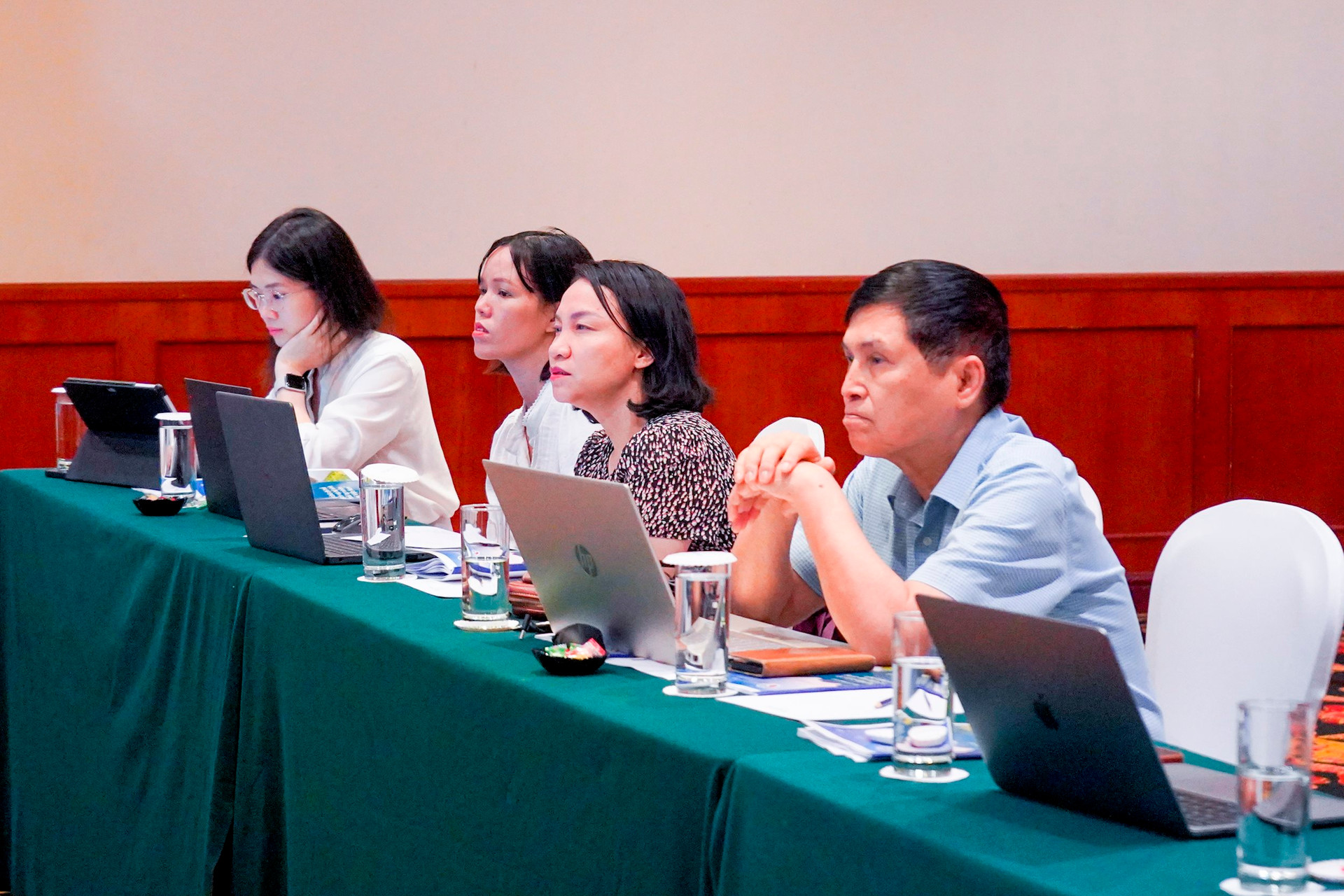
Although Vietnam has implemented PES-like initiatives such as collecting service fees for visiting protected marine and wetland areas, co-management models for aquatic resources, or developing environmentally friendly aquaculture methods in some coastal areas with the support of international organizations and relevant sectors, there is currently no comprehensive payment for marine and wetland ecosystem services.
Regarding the issue of financing for biodiversity in Vietnam, UNDP has implemented a number of initiatives such as sustainable financing for biodiversity, sustainable nature-based tourism , co-management of fisheries and natural resources, and promoting the implementation of payment mechanisms for natural ecosystem services. Vietnam also needs to make practical contributions to the implementation of the ambitious biodiversity goals committed to in the Global Biodiversity Framework set out at the 15th Conference of the Parties (COP15) to the Convention on Biological Diversity.
In addition, efforts are needed not only from policy makers, but also from corporations and individuals to come up with initiatives to promote ecosystem services to help the regeneration and restoration of biodiversity and ecosystems in Vietnam develop more sustainably.
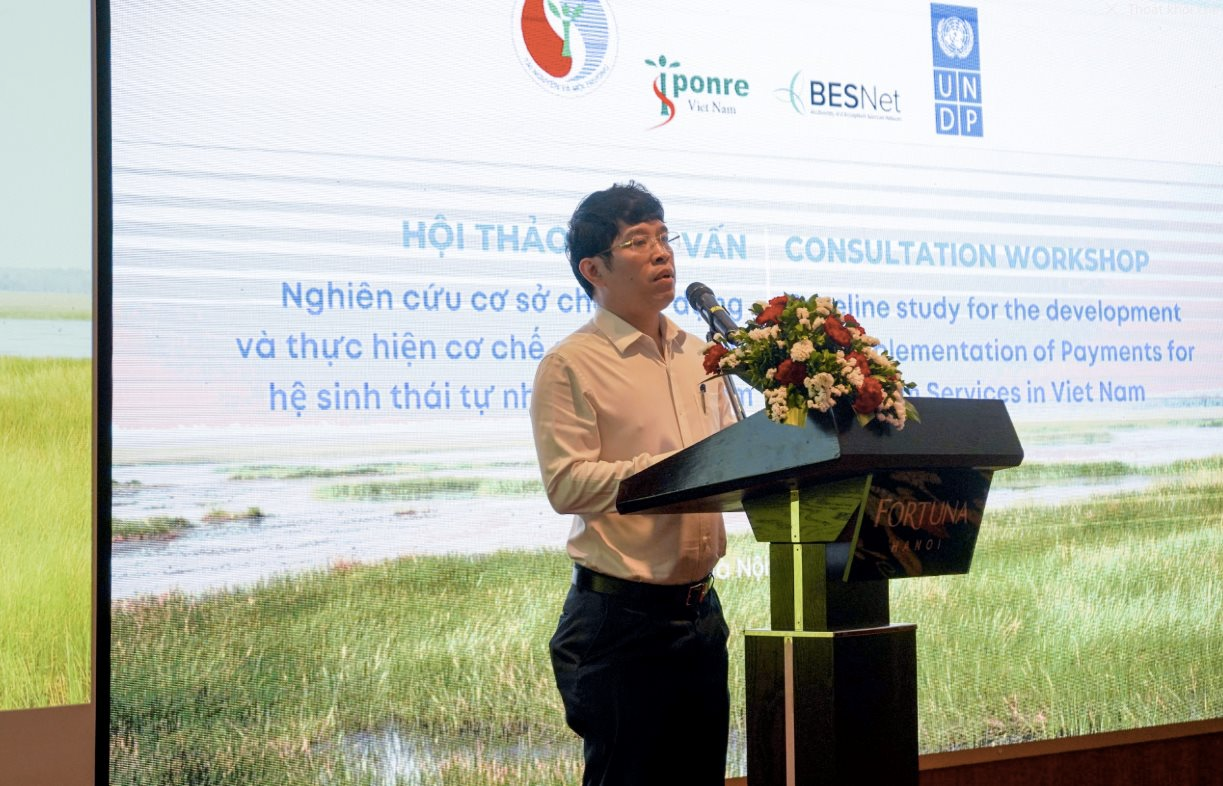
Associate Professor, Dr. Nguyen Dinh Tho, Director of the Institute of Strategy and Policy on Natural Resources and Environment, emphasized the importance of experts' contributions and opinions on research results and proposed mechanisms and policies to help complete research results and propose mechanisms and policies on payment for marine and wetland ecosystem services, in upcoming implementation plans to ensure feasibility and effective application.
Through reports summarizing and analyzing experiences and good practices of PES in countries such as China, East Africa, Europe, Costa Rica and practical models in Vietnam, it has been noted that the success in implementing the plan depends on many different factors.
Programs work best when the services are clearly defined. PES systems primarily focus on ecosystem/environmental services that are of high value to beneficiaries and low cost to provide. Watershed services, forest environmental services, biodiversity conservation, carbon sequestration, and landscape beauty are key targets of PES programs globally.
At the same time, the report also provides a number of key recommendations within the framework of the BES-Net Project Phase II, including developing criteria and methods for assessing national marine and wetland ecosystem services, supporting the assessment and evaluation of ecosystem services at the grassroots level, mapping the current status of marine and wetland ecosystem services in Vietnam, developing guidelines for provincial and grassroots levels on payment mechanism projects, piloting payments for ecosystem services for marine and wetland ecosystems, and improving policies and regulations on payments for natural ecosystem services, focusing on marine and wetland ecosystems.
The workshop was attended by representatives from many different organizations including the Ministry of Natural Resources and Environment , research institutes, international organizations (WWF, USAID), national parks, non-governmental organizations,...
The workshop is part of the Biodiversity and Ecosystem Services Network (BES-Net) Phase II project. BES-Net is a collaborative initiative between UNDP, UNEP-WCMC and UNESCO, supported by the International Climate Initiative (IKI) of the German Government and SwedBio. The project aims to promote biodiversity conservation and sustainable use of ecosystem services to enhance the resilience of the Earth and human well-being.
Source



![[Photo] Many young people patiently lined up under the hot sun to receive a special supplement from Nhan Dan Newspaper.](https://vphoto.vietnam.vn/thumb/1200x675/vietnam/resource/IMAGE/2025/5/18/6f19d322f9364f0ebb6fbfe9377842d3)
![[Photo] Ready for the top competitions of Vietnamese table tennis](https://vphoto.vietnam.vn/thumb/1200x675/vietnam/resource/IMAGE/2025/5/18/9c547c497c5a4ade8f98c8e7d44f5a41)

![[Photo] Party and State leaders attend the special art program "You are Ho Chi Minh"](https://vphoto.vietnam.vn/thumb/1200x675/vietnam/resource/IMAGE/2025/5/18/6895913f94fd4c51aa4564ab14c3f250)





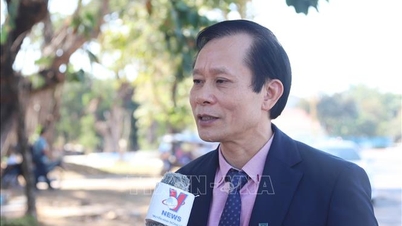



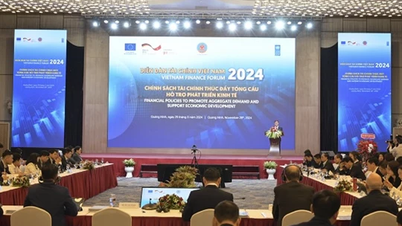

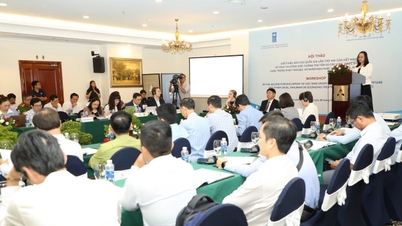


















































































Comment (0)